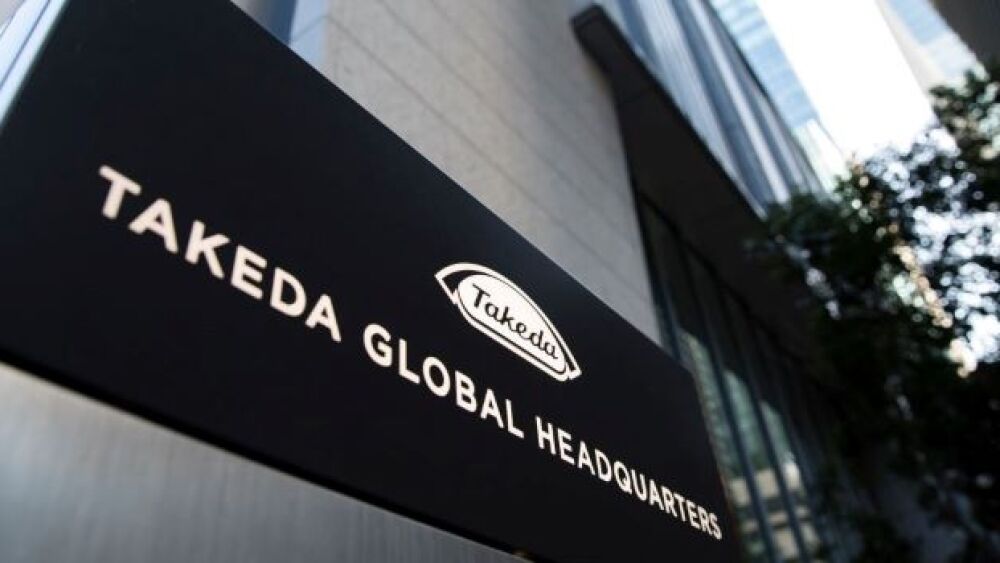Takeda’s vedolizumab met its primary endpoint in the Phase III GRAPHITE study, significantly improving event-free survival in patients with acute graft-versus-host disease.
Tomohiro Ohsumi/Getty Images
Takeda’s vedolizumab met its primary endpoint in the Phase III GRAPHITE study, significantly improving event-free survival in patients with acute graft-versus-host disease (aGvHD), the company announced Saturday.
In the vedolizumab arm, 85.5% of patients reached the primary efficacy outcome of intestinal aGvHD-free survival, 180 days after allogeneic hematopoietic stem cell transplantation (allo-HSCT), as compared to 70.9% among placebo comparators. The between-group difference was statistically significant, according to the announcement.
Vedolizumab was also significantly better than the placebo regarding aGvHD-free and relapse-free survival 180 days post-transplant.
Takeda presented these data at the 2023 Tandem Meetings.
Vedolizumab is a humanized monoclonal antibody that targets the α4β7 integrin, commonly expressed on the surface of specific white blood cells and disrupts its interaction with the protein MAdCAM-1. Most commonly, this disruption affects the gastrointestinal tract’s blood vessels and lymph nodes.
Through this mode of action, vedolizumab limits the migration of white blood cells into the gut. It modulates the inflammatory processes that drive ulcerative colitis, which is approved under the brand name Entyvio. Vedolizumab still needs to be given the regulatory go-ahead for aGvHD.
GRAPHITE is a randomized and double-blinded study comparing the efficacy of vedolizumab against a placebo as a preventive agent for aGvHD in patients who had undergone allo-HSCT. Vedolizumab was given as a 300-mg intravenous infusion a day before the procedure and on days 13, 41, 69, 97, 125 and 153 after allo-HSCT. All participants received a background GvHD prophylaxis regimen.
Aside from efficacy, GRAPHITE also assessed the biologic’s safety and found that 28.4% of patients in the vedolizumab arm developed treatment-related adverse events as opposed to 24.8% in placebo counterparts. Serious side effects arose in 6.5% and 8.5% of vedolizumab and placebo patients.
Hypersensitivity reactions, infections and liver injury were the most common toxicities.
The Race to Prevent aGvHD
Currently, only one drug is approved to prevent aGvHD--Bristol Myers Squibb’s Orencia (abatacept), which was given the green light in December 2021. The FDA gave Orencia Breakthrough Therapy and Orphan Drug designations for this indication.
Along with Takeda, waiting in the wings is Theriva Biologics, whose investigational aGvHD prophylactic ribaxamase is in a Phase Ib/IIa randomized, double-blinded and placebo-controlled trial to assess its safety and pharmacokinetic profile.
Early results, also presented at the Tandem Meetings, showed that the side effects documented were typical of patients who had undergone allo-HSCT. So far, no adverse or serious events have been attributed to the study drug.
California’s Humanigen is likewise gunning for an aGvHD prophylactic. Its investigational antibody lenzilumab is currently in a Phase II/III study as an early intervention for this post-HSCT complication. Still, the company also plans to assess its potential as a preventive measure.






